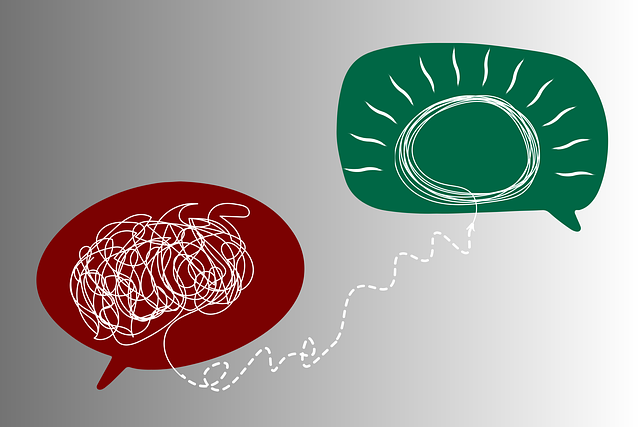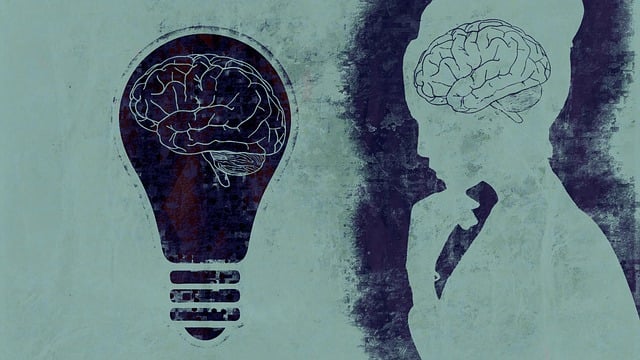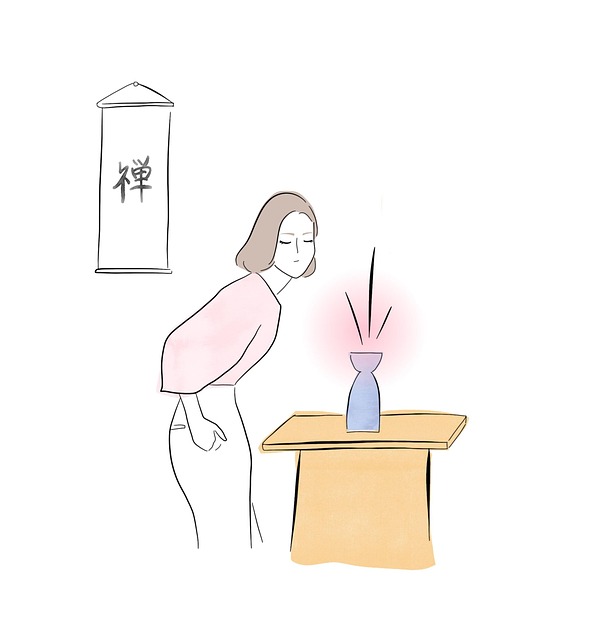Mindfulness meditation, an ancient practice focusing on present-moment awareness, is integrated into Lakewood Adjustment Disorder (LAD) therapy to address emotional adjustments and coping difficulties. This approach enhances trauma support services by enabling individuals to process past traumas and navigate current challenges. Regular mindfulness practice offers a powerful tool for managing LAD symptoms, fostering emotional regulation, and improving emotional intelligence. Creating a peaceful environment, using breathing exercises, and body scans significantly aids in anxiety relief and promotes positive thinking. Incorporating mindfulness meditation into daily routines can provide lasting relief from conditions like LAD through consistent short sessions and complementary practices.
Discover the transformative power of mindfulness meditation with our comprehensive guide. This practice, rooted in ancient techniques, offers a modern solution for managing stress and improving mental health, particularly beneficial for those dealing with conditions like Lakewood Adjustment Disorder Therapy (LADT). Learn how regular meditation can calm your mind, enhance focus, and bring about lasting relief. We’ll provide practical tips on creating an ideal meditation space, advanced techniques to deepen your practice, and strategies for seamlessly integrating this calming ritual into your daily life.
- Understanding Mindfulness Meditation and Lakewood Adjustment Disorder Therapy
- Benefits of Regular Meditation Practice for Mental Health
- Creating a Suitable Environment for Optimal Meditation
- Techniques to Enhance Focus and Mindfulness During Meditation
- Integrating Meditation into Daily Routine for Sustained Relief
Understanding Mindfulness Meditation and Lakewood Adjustment Disorder Therapy

Mindfulness meditation is a practice that cultivates present-moment awareness and non-judgmental acceptance. It involves focusing on one’s breath, bodily sensations, or thoughts, observing them without attachment or reaction. This ancient technique has gained prominence in modern times due to its effectiveness in reducing stress, anxiety, and improving overall well-being. For individuals struggling with Lakewood Adjustment Disorder (LAD), mindfulness meditation can be a valuable tool in their therapeutic journey. LAD is characterized by significant adjustments to life events, often leading to emotional distress and difficulties coping.
Lakewood Adjustment Disorder Therapy integrates mindfulness practices into its treatment framework, focusing on helping individuals develop self-awareness exercises that promote emotional regulation. Similar to the way a Community Outreach Program Implementation can extend support networks, mindfulness meditation allows people to connect with their inner experiences, fostering a deeper understanding of their emotions and thoughts. Trauma Support Services often emphasize the importance of cultivating present-moment awareness as a means of processing and healing from past traumas, ensuring individuals feel empowered to navigate life’s challenges more effectively.
Benefits of Regular Meditation Practice for Mental Health

Regular mindfulness meditation practice offers a multitude of benefits for mental health, particularly in managing conditions like Lakewood Adjustment Disorder. By cultivating present-moment awareness and promoting non-judgmental observation, meditation helps individuals gain better insight into their thoughts and emotions. This increased self-awareness fosters emotional regulation, enabling folks to respond to stressful situations with greater calmness and resilience.
Moreover, meditation enhances emotional intelligence, a key aspect of healthcare provider cultural competency training. It encourages empathetic understanding and improves the ability to perceive, interpret, and manage emotions, both within oneself and in others. This enhanced emotional intelligence can lead to improved patient care, as providers become more attuned to their patients’ psychological needs, ultimately contributing to better mental health awareness and overall well-being.
Creating a Suitable Environment for Optimal Meditation

Creating a peaceful and comfortable environment is key to optimal meditation practice, especially for those seeking relief through mindfulness techniques like Lakewood Adjustment Disorder Therapy. A quiet space free from distractions allows your mind to focus and calm. Consider adjusting your surroundings; reduce external stimuli by dimming lights, turning off electronic devices, or using headphones with calming music or nature sounds.
The ideal setting promotes emotional well-being promotion techniques and mental illness stigma reduction efforts by fostering a sense of tranquility. Whether it’s a dedicated meditation corner in your home or a quiet spot in nature, creating a safe haven encourages regular practice, making mindfulness meditation an accessible tool for improving overall mental health and resilience.
Techniques to Enhance Focus and Mindfulness During Meditation

Meditation is a powerful tool to enhance focus and cultivate mindfulness, offering a sanctuary from the bustling world. Techniques such as mindful breathing exercises can significantly aid in this process. By focusing on the inhalation and exhalation, one can calm the mind and improve concentration. This simple yet effective method involves observing each breath, noticing its rhythm, and gently guiding your attention back to it whenever thoughts wander, a common occurrence for those managing Lakewood Adjustment Disorder.
Incorporating body scans into your meditation practice is another strategy to strengthen mindfulness. Slowly directing awareness from the top of your head down to your toes can help you become more attuned to physical sensations, promoting relaxation and a deeper sense of presence. This heightened awareness can translate into better attention span and mental clarity, contributing to Anxiety Relief and fostering Positive Thinking. Additionally, incorporating these practices into a consistent Self-Care Routine Development for Better Mental Health can profoundly impact overall well-being.
Integrating Meditation into Daily Routine for Sustained Relief

Incorporating mindfulness meditation into your daily routine can significantly enhance mental wellness and provide lasting relief from various conditions, including Lakewood Adjustment Disorder. Starting small is key; dedicate just 10-15 minutes each day to practice. Consistency is more important than prolonged sessions at first. Find a quiet moment, perhaps during breakfast or before bed, and create a calm atmosphere with minimal distractions. You can use guided meditations available online or simply focus on your breath, observing thoughts without judgment.
Over time, as you build your practice, consider integrating other self-care practices like Mental Wellness Coaching Programs Development, Self-Care Practices, and even Mental Wellness Journaling Exercise Guidance to deepen your mindfulness journey. These complementary approaches can offer additional tools for managing stress, improving focus, and cultivating a sense of inner peace, contributing to overall mental wellness.
Mindfulness meditation, as enhanced by techniques like Lakewood Adjustment Disorder Therapy, offers profound mental health benefits. By creating a conducive environment, focusing on breath and body sensations, and integrating meditation into daily routines, individuals can achieve sustained relief from stress and anxiety. Regular practice not only promotes mental clarity but also fosters emotional well-being. Embrace these simple yet powerful steps to unlock the full potential of mindfulness meditation in your life.














